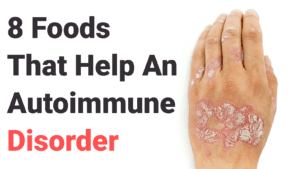Psoriatic Arthritis currently affects about 1 million Americans. This severe and progressive disease may manifest with or without any signs of the skin irritations of psoriasis. However, those suffering from that disorder are more at risk of eventually developing the accompanying arthritis symptoms.
Ongoing research continues to pinpoint the exact cause of this painful, debilitating affliction. Early detection is key for slowing and controlling the progression of the disease. So it’s of great benefit to understand any possible risk factors carried by yourself or your family.
Both natural and prescription treatments are available. It may be possible for traditional remedies to help alleviate inflammation and pain associated with the degeneration of joint tissues. Combining natural therapies with prescription meds may be necessary to prevent joint damage and maintain an optimum quality of life.
What is the cause of Psoriatic Arthritis?
Although there is no universally agreed-upon cause of psoriatic arthritis, many recent studies classify the disease is an auto-immune disorder in which the’s body natural defenses begin to attack healthy connective tissue.
Studies indicate there could be genetic factors that may place some individuals at higher risk. There are also indications that environmental factors or physical trauma may trigger the onset of the disease.
Psoriatic Arthritis Symptoms.
Although the direct cause of psoriatic arthritis may not be known, the symptoms are easily recognizable as they begin to display themselves. They may include:
- Sporadic joint pain/swelling
- Foot pain
- Neck and lower back pain
- Morning joint stiffness
- Swelling in the fingers and toes
- Red and white psoriasis patches on the skin
- Nails pitting or separating from the nail bed
- Tiredness
- Eye infections such as pink eye
- Loss of range of motion in the affected joints
- Joints become red and warm to the touch
- Shortness of breath
The above indicators will generally begin to manifest in individuals between 30-50 years of age, but they can sometimes start in childhood. About 10%-15% of those who have psoriasis will eventually develop evidence of arthritis.
If you have psoriasis and begin to experience joint pain, you will want to see your doctor and discuss possible outcomes and treatment plans. X-rays, blood, and joint-fluid tests can help in an accurate diagnosis to prevent future joint damage and discomfort.
Chest pain or shortness of breath may be caused by an inflammation of the lungs, chest wall, and even the aorta. The cartilage linking your ribs and breastbone may become inflamed, making breathing painful. This scenario is a less common manifestation that people living with psoriasis should also be aware of.
Your doctor may initially recommend nonsteroidal, anti-inflammatory medication to prevent your body’s production of certain irritating chemicals. However, with a bit of research, you may be able to assist your body naturally through diet changes and other treatments. Though prescription meds may become necessary, there are often side effects that you’ll want to avoid for as long as possible.
Foods to Heal Psoriatic Arthritis
After consulting a rheumatologist and possibly a dermatologist, about half of people living with psoriatic arthritis have opted to use alternative medicine and dietary recommendations to help manage their condition. Ongoing research continues to demonstrate the enormous benefits of dietary or herbal remedies, with some current breakthroughs that are well worth noting.
Some specific foods that are known for their anti-inflammatory benefits have significantly added relief to sufferers. A few of the most cited include the following.
1 – Fatty Fish.
Oily fish such as tuna, salmon, mackerel, and sardines are packed with anti-inflammatory omega-3 fatty acids. These are some of the most potent and effective foods to heal psoriatic arthritis. Research indicates that a daily dose of over 3 grams can significantly reduce stiffness and painful joints. This amount is a relatively large dose, so speak to your doctor about the best supplements. A combination of food and pill forms may be one preference.
2 – Apples.
The bioflavonoids quercetin and rutin found in apples are potent aids for protecting the body from inflammation. They also promote cellular health and increased blood circulation. Additional sources of these bioflavonoids include chamomile tea, citrus fruits, celery, onions, and green peppers.
3 – Almonds.
Almonds are the most excellent non-meat source of vitamin E, which promotes healing and the growth of cartilage. Maintaining optimal levels can help keep joints supple for a full range of motion.
4 – Mangos
Mangos contain not only vitamins A and C for promoting healthy skin, but studies have revealed they contain an inflammation-fighting compound called mangiferin. Fortunately, you can purchase mangos year-round as the primary source for this compound. And, they offer significant benefits to all auto-immune disease sufferers.
5 – Vitamin D Enriched Foods
People living with Psoriatic arthritis tend to be deficient in vitamin D, which is critical to maintaining skin health. Fortified milk is one source of this vital vitamin. It occurs naturally in cheese and fortified foods as well as being present in oily fish.
Dairy products may not be the right choice for some. If you find dairy foods do not agree with you, try other natural and fortified vitamin D sources.
6 – Turmeric
Information on the many benefits of this traditional spice has been abounding recently. Tumeric is much-touted for containing the anti-inflammatory compound curcumin, and studies indicate the spice may be as effective as many NSAIDs for pain relief. You’ll find there are a variety of ways to add turmeric to your diet without being overwhelmed by the taste.
A Note on Fasting for Your Health
Introducing a periodic, short period of fasting into your overall diet can allow your body to cleanse itself from built-up toxins. As a result, all those changes you’re making to your diet may be more effective as foods to heal psoriatic arthritis damage and inflammation. Your fast can be as simple as limiting the number of hours in which you are allowed to eat each day or limiting yourself to just one meal on certain days.
Foods to Avoid
Along with the many beneficial foods, a list of foods to avoid is a valuable resource when treating psoriatic arthritis. These foods can cause inflammation and joint pain and should be eliminated from a sufferer’s diet as much as possible.
Some foods may appear on both do, and the don’t eat lists, depending on your source. In these cases, you will need to do your research and consider your sensitivity to the questionable food source. Some people tend to have a more negative reaction to certain food compounds and should avoid them as irritants. Talking to a nutritionist along with your dietary history, will determine what to keep and what to eliminate from your diet.
Age is also a factor. After the age of 25, your body begins to manufacture less of certain critical enzymes needed to combat the effects of unhealthy food choices on joint tissue. So avoiding these foods becomes even more essential and paramount in alleviating debilitating, irreversible joint damage.
Some foods are just universally bad for anyone experiencing joint pain and inflammation. Becoming aware of how these foods potentially affect people with psoriatic arthritis is an essential step in the natural healing process.

Some crucial foods for anyone to avoid to hinder joint inflammation and undesirable weight gain are:
- Gluten: encourages inflammation and “leaky gut,” which allows damaging bacteria and other compounds into your bloodstream
- Processed foods: contain high amounts of Omega-6 trans-fats that trigger inflammation
- Blackened and barbequed foods: inflammatory compounds are often generated by the cooking process, causing irritation and destroying necessary sustaining enzymes
- Alcohol: too much alcohol consumption releases toxins that cause inflammation throughout the body. To avoid these issues, men should limit alcohol consumption to 2 drinks per day, women to 1 drink.
- Sugar: leads to leaky gut and inflammation; this includes many sugar substitutes
There are numerous lists of foods to avoid available on the internet for informational, comparative purposes. Making informed dietary decisions can set you on the road to recovery without the dangerous side effects of some prescription meds.
 Final Thoughts of Overcoming Psoriatic Arthritis
Final Thoughts of Overcoming Psoriatic Arthritis
A diagnosis of psoriatic arthritis doesn’t mean you must resign yourself to a lifetime of suffering. You have many choices regarding treatment plans, including adjusting your diet and lifestyle, to better promote personal healing.
The earlier you begin to notice potential symptoms of arthritis accompanying your psoriasis, the sooner you can start to reverse debilitating pain and joint discomfort. Your best defense may be to know the most critical nutrient supplements. Thus, you will how to avoid negating their effectiveness with poor dietary choices.
With these useful tips, you can maintain an active, fulfilling lifestyle despite your ongoing battle with psoriatic arthritis. Therefore, for those who are willing to make and implement a plan for continued awareness and healing, the prognosis for the future is an encouraging one.













 Community
Community

